If you've noticed, our website had another slight weapons malfunction that happened last night. Our server in NYC is raising from the ashes as we speak and the hamsters are back to spinning their wheels. We're even able to process orders now! Please don’t hesitate to give us a shout if you have any concerns […]
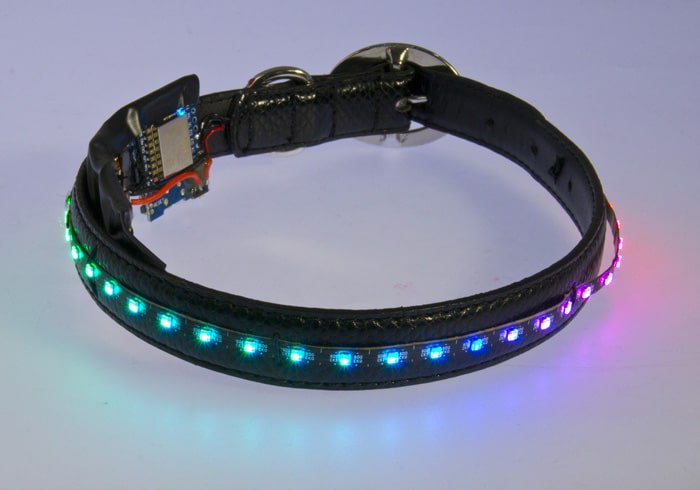
APA102-2020 MicroNova Custom LED Choker
I created this choker as a project to demonstrate the new MicroNova APA102-2020 LED strips.
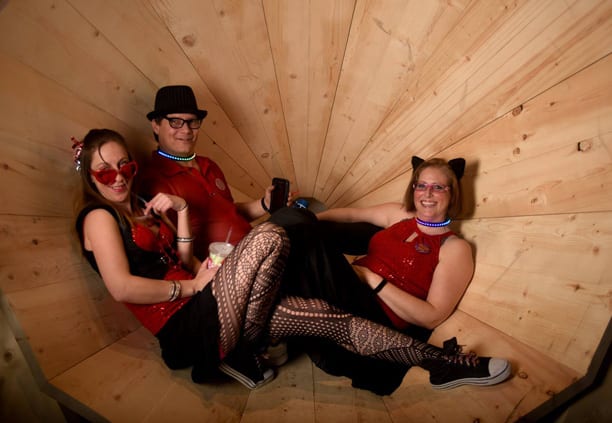
Photo by Yeti, edited by Batgirl
These addressable LEDs are extremely small, less than 1/4 the size of a standard 5050 LED.
This project was built using engineering sample standard MicroNova 99 LED / meter strips . The MicroNova strips we are selling have 198/meter - twice the density!
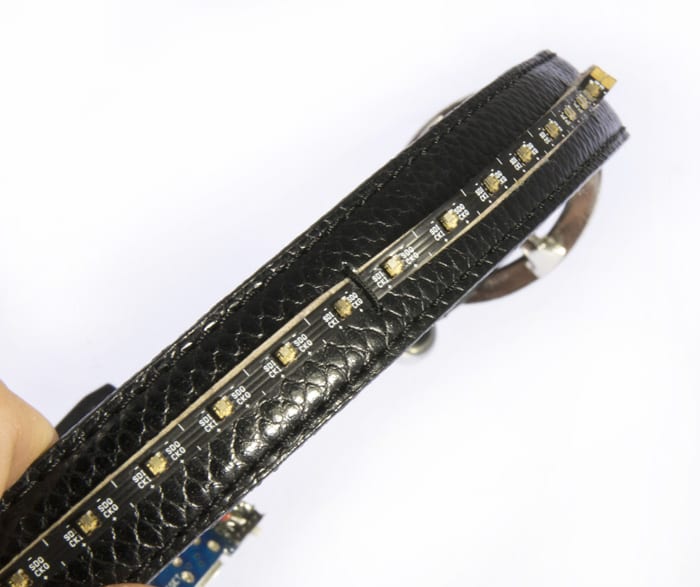
Reason for a Choker necklace:
Hats have been done, shoes have been done, pendants have been done. This is something new for a Valentine’s dance costume, so I decided to go with a choker design. I also wanted something that was interactive, something that would add another layer of WOW to just lighting.
The Build:
I used a Wemos D1 Mini development board along with a boost-converting battery shield for the Wemos D1.

The battery shield was a particularly good choice here because the MicroNova LEDs should be supplied a solid 5VDC. This board boosts the battery voltage to 5V, and then the Wemos D1 Mini bucks it down to 3V3 for it's own operation.
A mini SPDT Slide switch toggles the power from the battery shield to the D1. This allows charging the battery using the battery shield USB connector while not powering the D1.
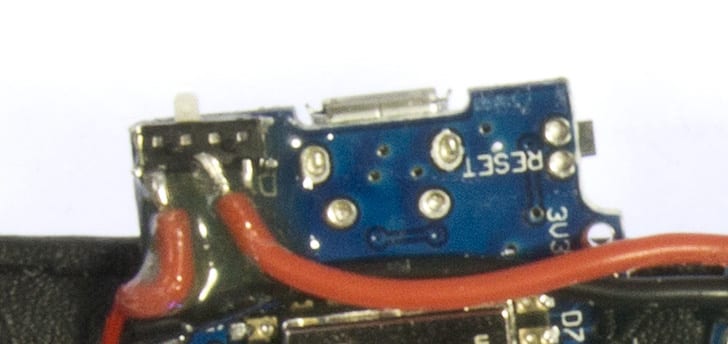
Epoxy locks the switch and wires in place.
The battery used is a conveniently handy older 450mAh Lithium Polymer. Depending on the lighting mode, this battery can power the necklace for a couple of hours.
I used elastic thread to attach the LED strip and components to the necklace. A heavy duty needle was all that was needed to punch through the (imitation) leather belt. Because the thread was elastic and tied under tension, it held the MicroNova strip well in place.
Operation:

When the choker powers up, it creates a WiFi Access Point called "HeartBurnChoker1".
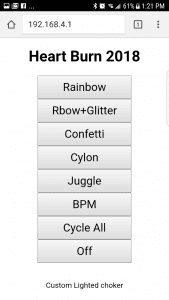
Once I connected to this WiFi, I opened a browser and went to 192.168.4.1. The control interface is simple, but effective. The D1 Mini has more than ample power and speed to effectively drive these LEDs. The MicroNova features separate clock & data lines, so even relatively slow I/O (like Raspberry Pi) can still make it work.
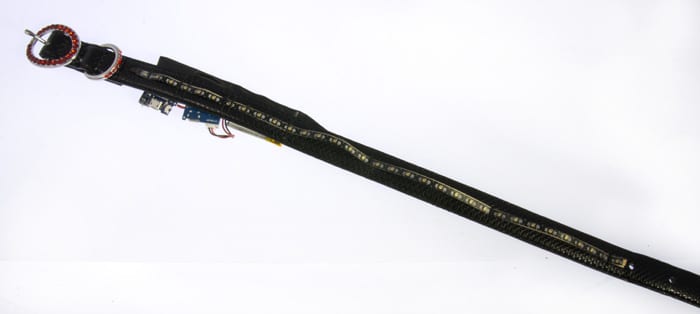
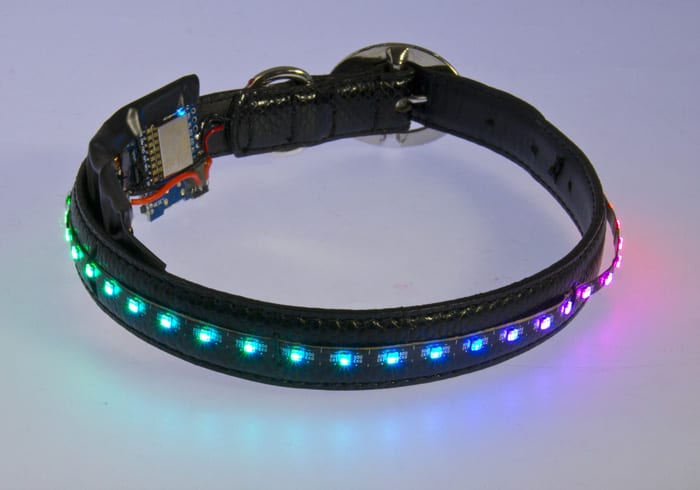
Video of the Collar in Action
MORE POSTS
3W Stereo Bluetooth Interface, 3.7~5VDC, FM / TF/ USB, IR $18.20CAD / $14.50USD We are impressed with this stereo Bluetooth v4.2 module with USB, SD card, or Bluetooth audio inputs and a remote control driving a 3W amplifier. 3W Stereo Bluetooth Interface, 3.7 ~ 5VDC $12.67CAD / $9.50USD A basic bluetooth speaker driver board, ideal […]
We just had word from our Italian distributor at Robot-Italy.com - it seems that he was victorious! Take a look at his website - they know how to make cool trophies in Italy...
Solarbotics will be at the Calgary City Teachers' Convention Thursday & Friday February 11-12, 2016. We will demo a variety of educational kits for teachers to use in classrooms, including introductory kits to develop skills in programming, mechanical construction, and soldering. Come put a face to the name at booth 326 and find out how […]
Solarbotics, Ltd. is not responsible for misprints or errors on product prices or information. For more information, please see our Terms and Conditions.
Warning: This product contains chemicals known to the State of California to cause cancer and birth defects or other reproductive harm.
Please visit www.P65Warnings.ca.gov for more information. This item was manufactured prior to August 31, 2018.

